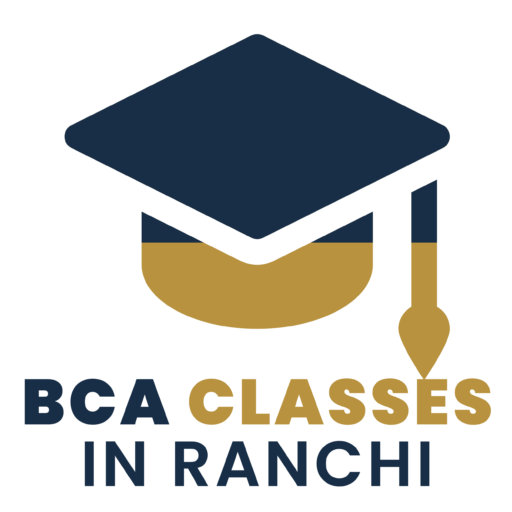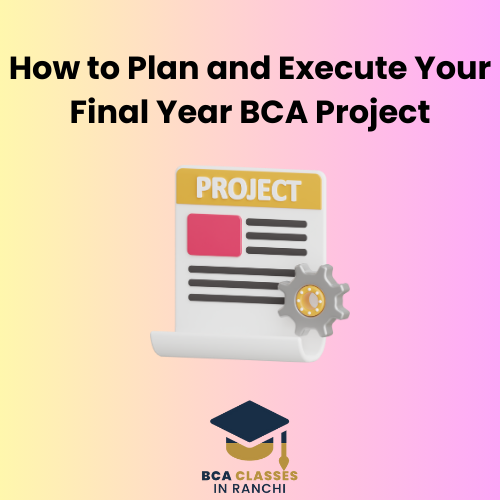Understanding the Basics of a Final Year BCA Project
A final year BCA project serves as a critical component of the Bachelor of Computer Applications degree, acting as a culmination of the knowledge and skills acquired throughout the program. This project typically reflects a student’s understanding of core concepts in computer science, programming, and software development. In this context, the significance of the project cannot be overstated; it provides students with a platform to apply theoretical knowledge to practical scenarios, enhancing their problem-solving abilities and technical expertise.
The design and implementation of a final year BCA project not only aid in skill development but also prepare students for the professional world. Through this process, students learn valuable competencies such as project management, teamwork, and effective communication. These skills are essential for future employment in a competitive job market, where employers seek candidates capable of both technical prowess and collaborative efforts. Therefore, students should approach their final year project with clear objectives, ensuring that their work is aligned with their career aspirations.
When considering a project, students are presented with various options, including software development, research-based projects, and application creation. Each type offers unique challenges and learning opportunities. Software development projects may involve building applications or systems that solve real-life problems, while research-based projects could entail exploring new methodologies or technologies. Regardless of the chosen path, identifying a project topic that is both of interest and relevant to current trends in technology is crucial. This not only enhances engagement with the project but also contributes to a more meaningful and productive learning experience.
Choosing the Right Project Topic
Selecting an appropriate project topic for your final year BCA project is a critical step that influences both your learning experience and career trajectory. Begin with brainstorming areas of interest that resonate with your personal passions and professional aspirations. Reflect on subjects that not only fascinate you but also align with future job opportunities in the tech industry. For instance, emerging fields such as artificial intelligence, machine learning, or data analysis can be excellent choices, given their growing importance in the workforce.
Researching existing projects is also an essential part of the topic selection process. Explore online repositories, academic publications, or platforms like GitHub to understand current trends and gauge the scope of existing solutions. This will provide insights into what has been accomplished and help you identify gaps your project could address. Having a clear understanding of existing literature can ease your search for a unique angle or idea that has yet to be explored.
Consulting with professors or industry professionals can further enhance your topic selection process. Their experience and insights can guide you in choosing a topic that is not only timely but also feasible considering the resources at your disposal. They might suggest specific technologies or methodologies that are currently in demand, helping you to hone in on a suitable theme.
Consider feasibility when deciding on your project. Choose a topic that you can realistically complete within your program’s timeframe and the resources available to you, including access to software, hardware, and mentorship. Narrowing down broader ideas into specific, actionable steps will not only streamline your project but also improve your chance of success. By following these strategies, you can select a project topic that fulfills both your academic and career objectives.

Planning Your Project: Creating a Roadmap
The initial phase of any successful final year BCA project lies in thorough planning. Crafting a well-defined roadmap is essential to guide the project from conception to execution. Begin by setting clear objectives that articulate the purpose and scope of your project. This involves identifying the key questions you wish to address and the outcomes you seek to achieve. Explicit goals foster a sense of direction and provide a basis for evaluating the success of the project.
Once the objectives are established, the next critical step is to develop a comprehensive timeline. This timeline should outline all the phases of your project, from research to final presentation. Allocate sufficient time for each component, taking into account potential challenges that may arise. Breaking down the project into smaller, manageable tasks will not only alleviate stress but also allow for effective monitoring of progress.
Milestones play a crucial role in tracking project advancement. Establishing key milestones will enable you to assess progress at various stages and make necessary adjustments based on setbacks or new discoveries. Regular progress checks are vital; they encourage reflection on the work completed and prompt discussions on necessary changes in approach. Furthermore, maintaining well-organized project documentation is essential for personal organization as well as for future reference.
Resource allocation is another vital aspect to consider during the planning stage. Clearly outline what resources—such as software, hardware, and human assistance—are required, ensuring that they are readily accessible. Additionally, incorporating feedback from mentors and peers throughout the planning process is paramount. This collaborative engagement not only enriches your understanding but also enhances the project’s overall quality. Be prepared to adapt your initial plan as challenges emerge, using new insights to refine your approach. This adaptability is key to navigating the complexities of your final year BCA project successfully.
Executing the Project: From Development to Presentation
Executing your final year BCA project is a multifaceted process that encompasses several stages, including coding, testing, and preparing for the presentation. The first step is the actual development of your project, where you will convert your ideas into a working application or solution. Utilizing appropriate programming languages and frameworks is crucial at this stage. Depending on the requirements, languages such as Java, Python, or C# might be ideal, while tools like Git can assist in version control, ensuring a smooth workflow.
During the development phase, it is essential to prioritize good coding practices. This includes writing modular code, following naming conventions, and documenting your code extensively. These practices not only make your code more readable, but they also facilitate easier debugging and future modifications. As you work through the project, consistent testing should be integrated into your workflow. Employing unit tests and integration tests can help identify and resolve issues early, ensuring that the solution meets the project’s objectives.
Once the development and testing phases are successfully completed, the next stage involves compiling your project documentation. This should include a comprehensive introduction to your project, your development methodology, and a detailed description of the tools and technologies used. Clear and concise documentation is vital, as it aids others in understanding your work and provides a valuable resource for your presentation.
Conclusion
As you prepare for your project defense presentation, consider the key elements that will engage your audience. Craft a compelling narrative around your project, demonstrating its significance and how it addresses the problem statement. Rehearsing your presentation multiple times will enhance your delivery and confidence. Furthermore, be prepared for the Q&A session by anticipating potential questions and formulating thoughtful responses. This level of preparation not only makes a lasting impression but also showcases your expertise in the subject matter.
Read Our Latest Blog
Top 10 Projects for BCA Students to Build a Strong Portfolio
Phone Number: +91-7488456170
Email ID: abhishek@eepl.me
Our Platforms:
Digilearn Cloud
EEPL Test
Live Emancipation
Follow Us on Social Media:
Instagram – EEPL Classroom
Facebook – EEPL Classroom
Stay connected and keep learning with EEPL Classroom !








